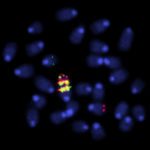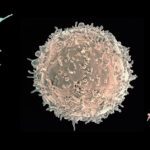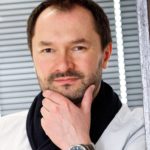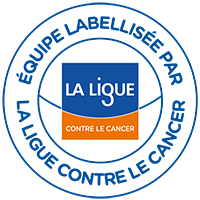Présentation
Cancer cells frequently harbor somatic mutations leading to altered DNA repair pathways. In some cases, these defects can be therapeutically exploited as these tumor cells, but not healthy cells, rely on compensatory DNA repair pathways to survive endogenous or cancer therapy-related genotoxic stress. Thus, the success of DNA repair-based cancer therapeutic approaches relies on our comprehensive understanding of complex DNA repair machineries. The two main pathways for the repair of DNA double-strand breaks (DSBs) are homologous recombination (HR) and non-homologous end joining (NHEJ), with pathway choice partly determined by functional antagonism between the HR-promoting factor BRCA1 and NHEJ-promoting proteins, notably 53BP1 and Shieldin. In B cells, antigen receptor gene diversity is generated through RAG1/2-induced V(D)J recombination and AID-induced class switch recombination, two cut-and-paste mechanisms which shuffle pre-existing DNA elements to create a large repertoire of functional antigen receptor genes. Because these DNA recombination processes distinctly rely on components of 53BP1, Shieldin and NHEJ for the repair of their DSB intermediates, they offer unique physiological settings to study and decipher the molecular determinants of DSB repair pathway choice.
As such, in this research program, we utilize DNA recombination processes in B cells to unravel the mechanisms through which the 53BP1-Shieldin-NHEJ axis promotes DSB repair and to identify specific DSB response regulatory complexes. Through these studies, we aim to discover novel modes of regulation of DSB response and repair pathway choice that could aid in the development of DNA repair-based cancer therapies.




